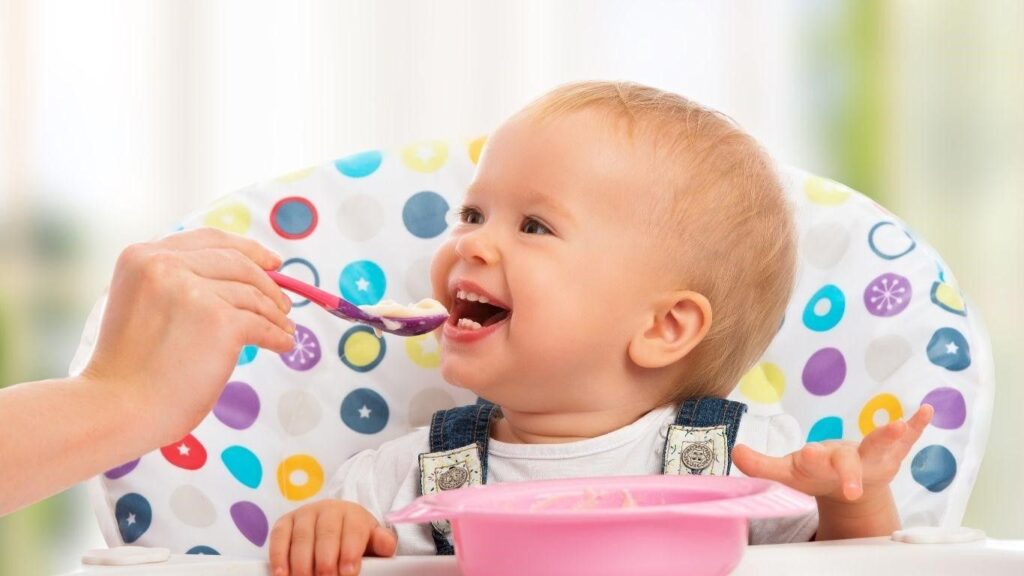In my opinion, the happiest people in the world are new parents. When you have a baby, your world has changed – you have taken on the responsibility for your baby’s life and health because it is so nice to see him or her cheerful and healthy. You want to protect your baby from adversity and disease.
As soon as your baby is born, sees the world around him, his body begins to populate the millions of bacteria. Among them: are probiotics and prebiotics, enterococci, staphylococci, and other microbes. Staphylococci are considered conditionally pathogenic to the microflora, and if there are few of them, they are perfectly safe. But when their number increases, the baby begins to have problems with his tummy.
The baby’s development and behavior depend on the overall state of the gut microflora.
The intestinal microflora of the baby performs many important functions, such as participation in digestive processes, the synthesis of vitamins, minerals, and other nutrients. In addition, it acts as a protective barrier, preventing the penetration of harmful bacteria, and regulating the body’s immune system functions. Therefore, intestinal microflora is significant for the health of the body as a whole.
Infant microflora settlement occurs during childbirth and continues afterward, after birth. For the formation of normal intestinal biocenosis is very influential, long-term breastfeeding (children under 6 months are recommended exclusively breastfeeding). Causes of dysbacteriosis in infants may be diseases of the genitourinary system of the mother, early transition to artificial feeding, inappropriate use of antibiotics. Changes in the type of stool in dysbacteriosis can be in the form of rarefaction (the feces contain mucus, foam, maybe green), and in the form of constipation.
Table of Contents
Types of dysbacteriosis in babies
However, we must remember that the frequency and type of stools in children in the first year of life have their characteristics. Children in the first months of life normally carry out intestinal stools every time after feeding (5-6 times a day). Their stools have a rare consistency. Subsequently, the number of defecation decreases, stools in children are formed until one year of age and usually occurs 1-2 times a day.
Constipation in children of the first year of life is diagnosed when there are stools of dense consistency or when there are no bowel movements for more than two days. In older children, if the bowels are emptied less than three times a week or if the bowels are difficult to empty.
Causes of constipation in a baby may be lack of foods in the diet that stimulate the bowels (vegetable fiber, fresh fruits, and vegetables, dairy products); too long use of diapers; fear of the potty, and as a consequence, delayed formation of the defecation reflex.
The causes of liquid stools, in addition to dysbacteriosis, may be intestinal infections (viral, bacterial); helminth infestation, giardiasis; pancreatic disease; inflammatory bowel disease; diseases associated with a lack of enzymes, and disorders of absorption in the intestine.
Accordingly, only a pediatrician can determine the true cause of a child’s bowel stool problems, which should be consulted if the above problems occur.
Probiotics and their function

A probiotic is a functional component containing bacteria that provide an improvement in the composition of the normal microflora of the human gut.
The main types of probiotic microorganisms include lactobacilli, bifidobacteria, propionic acid bacteria, lactic acid streptococcus, bacteria of the genus Lactococcus. This beneficial biota acts as an immune system in the intestinal mucosa, preventing pathogens from developing.
Probiotic function:
- Protecting the microflora when taking antibacterial drugs;
- Restoring the balance of the intestinal microflora;
- Elimination of diarrhea and other intestinal disorders;
- Strengthening of the immune system.
With dysbacteriosis, it is recommended to first analyze the intestinal microflora to find out what strains of bacteria are missing, and then buy probiotics to take after antibiotics containing these particular strains. In terms of effective amounts, at least 1 billion beneficial bacteria are considered the optimal daily norm.
Gastric juice has a detrimental effect on most bacteria, and such protection works for probiotics contained in an ordinary gelatin capsule. The right drug must be contained in a special shell, which tolerates the detrimental effects of gastric juice and disintegrates already in the intestine. Dietary supplements containing both probiotics and prebiotics are considered quality. After all, prebiotics is not bacteria, but the best environment for probiotic life.
Baby probiotics today are represented by a huge variety, they can be purchased at any pharmacy. And although these drugs are considered safe, you should not prescribe them to your baby on your own. Before giving probiotics to your baby, it is extremely important to consult a doctor and take tests to determine exactly what microorganisms are missing and what – in excess.
Probiotics in baby food

Breast milk has everything an infant needs. It contains a lot of prebiotic substances for the growth of beneficial bifido and lactobacilli. It is a biologically active environment that adjusts to the baby’s needs. However, there are many cases where breastfeeding is not possible, and then all kinds of baby formula are used. These breast milk substitutes should provide babies with nutrients and have functional properties as close as possible to those of breast milk.
That is, a modern adapted formula must include components of bifido and lactobacilli, so that an artificially-fed baby goes through all the stages of gastrointestinal maturation correctly – just like a breastfed baby.
Adding probiotics to formula feedings is a key strategy for reducing the incidence and severity of diarrhea in young children. The logic behind the use of probiotics is based on the fact that clinical studies of a wide range of bacterial strains (mainly lactic acid and bifidobacteria) have shown convincing effects. The use of probiotics allows increasing the stability and functionality of the microbiota, which promotes the health of the intestine and provides increased protection for babies.
In the market of modern formula milk, the leader is Hipp baby formula, which is recommended by more than 50% of parents. It contains a protective complex modeled on breast milk. The probiotic cultures of L. fermentum bacteria form the normal intestinal microflora of the baby and support healthy digestion. Omega-3 fatty acids have an excellent influence on visual function and the nervous system in general. Vitamins, iron, and calcium are added for the harmonious development of the baby. A protein complex of the highest organic quality, added according to the child’s age requirements, lays a solid foundation for stable mental and physical development. The Hipp brand products pass the strict European certification system for baby food products.
To summarize the above, we see that fermented baby formula, with the addition of probiotics and prebiotics, reliably brings the functional performance of infants closer to that of a breastfed baby. Reducing the frequency and duration of daily crying and annoying colic can have a positive impact on the baby’s normal sleep and, consequently, on the psychological well-being of the family. In other words, an organic formula with probiotics is the best nutritional option for formula-fed babies.













